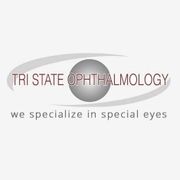
Cataracts are common vision problems that occur when proteins clump together in the eye, developing a cloudy film over the lens. Although the effects of this eye condition can vary, some individuals may require treatment from an ophthalmologist. If you’re concerned about your vision or have noticed a change in the appearance of your eyes, here are a few points to know about how cataracts come about and how to address them.
FAQ About Cataracts
How do they happen?
Normally, the lens tissue of the eye consists of a delicate balance of water and protein. Aging, genetics, and injury can change the composition of the lens, and in turn, cause proteins to clump together. Over time, this mass of proteins gets larger and forms a noticeable cloudy film over the lens.
Who develops cataracts?
Although any person can develop this eye condition, it typically affects adults that are 60 and older. About half of Americans over the age of 80 are estimated to have some form of cataracts.
Other factors that can increase your risk of developing cataracts include smoking, UV exposure, diabetes, and excessive alcohol consumption.
What are the signs of a cataract?
 Changes to the appearance of the eye—such as a cloudy lens—are usually the first signs of cataracts. However, those with the eye condition may also experience varying degrees of blurriness, halos around lights, and poor night vision.
Changes to the appearance of the eye—such as a cloudy lens—are usually the first signs of cataracts. However, those with the eye condition may also experience varying degrees of blurriness, halos around lights, and poor night vision.
How are cataracts treated?
In the early stages, cataracts are typically small and do not impair vision. In these cases, treatment usually isn’t necessary. However, you should visit your eye doctor regularly to monitor the cataract’s progression.
If the condition makes it difficult for you to see, prescription glasses may be used to reduce glare and sharpen your vision. However, if the problem is severe, cataract surgery may be necessary. During this procedure, the lens is carefully removed and replaced with an artificial lens.
When vision problems concern you, turn to the caring professionals of Tri-State Ophthalmology. Providing top-tier vision care in Ashland, KY, these ophthalmologists can accurately diagnose common eye conditions and provide custom treatment to help improve your sight. If the case is more advanced, this team is also equipped to provide cataract surgery. To learn more about these capabilities, visit this ocular health provider online. To schedule a convenient eye exam, call (606) 324-2451.
About the Business
Have a question? Ask the experts!
Send your question

